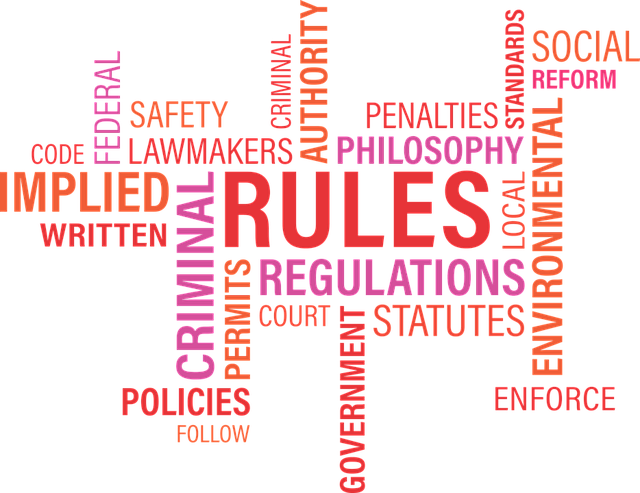In the exploration of Bahá’í teachings, one might ponder: what about the multitude of rules and regulations that seem to govern our lives? Could they potentially stifle our freedom? As we embark on this intellectual journey, we shall uncover the nurturing essence of the rules of religion and dissect the metaphorical “red lights” of life that guide our moral and spiritual conduct. Through this framework, we aim to illuminate the wisdom inherent in adherence to divine law, while also acknowledging the challenges it presents.
Understanding the Rules of Religion
The Bahá’í Faith posits that religion is fundamentally a dynamic and evolving force. It is envisioned as a guide to facilitate the development of the individual and the community. Central to this belief is the understanding that rules, divine commandments, and practices are not mere impositions, but are instead a framework for spiritual and ethical progress. The teachings of Bahá’u’lláh emphasize the concept that rules are designed to cultivate virtues, promote social cohesion, and instigate a formidable transformation in both the individual and society.
Bahá’í principles extoll the virtues of unity and peace, underscoring the necessity for adherence to religious laws that encourage harmony among diverse global cultures. The teachings often illustrate this intrinsically interconnected world through the lens of the oneness of humanity. This suggests that the regulations set forth by Bahá’u’lláh are not rigid barriers but are rather bridges that connect individuals to their higher purpose.
The Role of Divine Law
Divine law, within the context of the Bahá’í Faith, is portrayed as a loving prescription for human conduct. It serves as a compass that directs believers toward ethical living and spiritual enlightenment. For instance, adherence to prayer, fasting, and the practice of charity are not merely obligations; they are invitations to deepen one’s relationship with the Creator and foster a sense of community. Such practices imbue life with purpose and instill a deep awareness of one’s interconnectedness with others. However, the intrinsic challenge lies in the perception of these laws as constraining. Are we to view them as limitations, or can we embrace them as pathways to liberation?
A salient aspect of divine law is that it seeks to illuminate the darker corners of human behavior. Thus, many believers confront “red lights” in their lives—those ethical dilemmas and moral quandaries that beckon caution and reflection. These “red lights” serve as poignant reminders of ethical missteps that could lead to comprehensive spiritual and social repercussions. They provoke introspection and the necessity for dialogue about our choices.
Red Lights: Moral Dilemmas and Ethical Challenges
In the Bahá’í context, red lights signal moral dilemmas that require careful consideration. These challenges often emerge from the intersection of personal desire and communal responsibility. For instance, one may grapple with materialism, which, while often culturally celebrated, can lead one away from spiritual fulfillment. The Bahá’í teachings encourage individuals to examine their priorities and the larger implications of their choices on society and personal spirituality.
When faced with situations that invite ethical ambiguity, such as issues of honesty or integrity, Bahá’í principles call upon individuals to exert mindfulness. The teachings advocate for reflection on the virtues that guide our actions, emphasizing the importance of aligning one’s life with the expectations of divine law. This inevitably leads to a continuous process of self-assessment and growth.
Furthermore, the notion of “guardianship” in Bahá’í teachings extends beyond the individual to encompass collective ethical governance. The community must serve as a custodian of moral clarity, standing firm against the tide of ethical decay. Herein lies another dimension of challenge—how might one mobilize a community to reflect shared values while navigating the diverse perspectives inherent within? Cooperation, dialogue, and inclusivity emerge as critical elements in navigating this ethical landscape.
Navigating Personal Freedom in a Framework of Divine Law
This intertwining of rules and personal freedom leads us to another crucial point of discussion. Can the observance of Bahá’í laws coexist with individual expressions of freedom? The answer, seemingly simple yet profoundly complex, resonates at the heart of the Faith. Bahá’u’lláh declares that true freedom is not the absence of restraints but the ability to live a life aligned with the divine will. In this light, the pursuit of spiritual fulfillment necessitates a harmonious balance between individual liberty and adherence to collective standards.
The transformative power of embracing Bahá’í laws lies in the profound elevation of human potential. When individuals collectively adhere to these principles, they not only enhance their own lives but also contribute to the betterment of society at large. Hence, the interplay of rules and red lights ultimately fosters a tapestry of spiritual and ethical awakening.
Conclusion: Embracing the Journey
As we traverse this intricate landscape of Bahá’í teachings, it becomes evident that the journey entails continuous self-reflection and commitment. The interplay between divine laws and personal freedom invites us to question, to challenge our preconceptions, and to engage with the profound depths of our humanity. Rules are not mere restrictions; they are invitations to embrace a higher purpose. Meanwhile, the red lights act as navigational aids that compel individuals to recalibrate their moral compasses.
In this duality, we find the rich tapestry of Bahá’í teachings—where rules illuminate the path to deeper spiritual fulfillment, and red lights serve as crucial indicators of ethical mindfulness. Thus, the question remains: will you embrace the transformative power of the rules of religion and heed the red lights that beckon your attention? As we endeavor to respond earnestly to this inquiry, may we collectively strive towards a future imbued with unity, love, and spiritual elevation.
